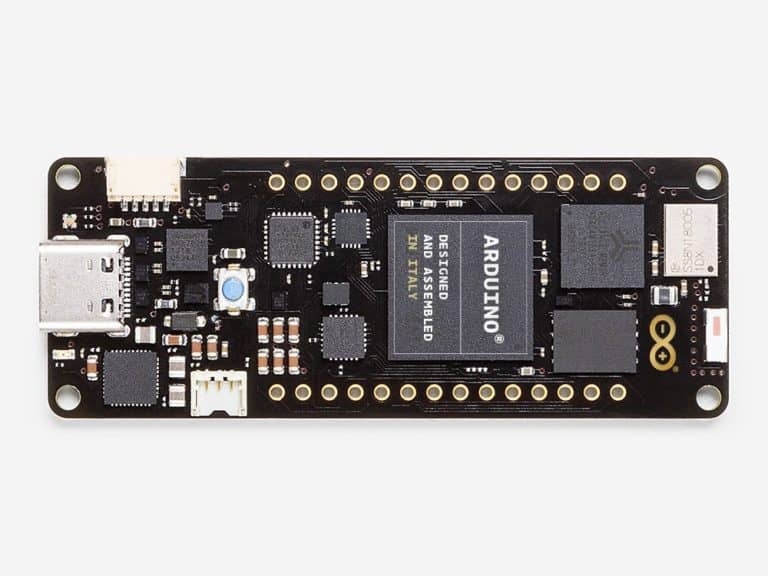The open source platform Arduino today announced the launch of a new low code platform combined with a modular hardware system for IoT developments. The intention is to give SMEs the tools to develop IoT. This without having to invest in specialised technical resources.
Besides the low-code platform, Arduino also launches new hardware under the name Portenta H7. It includes everything you need for the start of an IoT hardware platform. This includes a crypto authentication chip and communication modules for wifi, bluetooth LE, LTE and Narrowband IoT. The software evolves to support powerful hardware.
The hardware consumes very little energy and uses a single cell 700 mAh battery. In this way, industrial apps can function for a long time. The device works at temperatures varying between -10°C and +55°C, with the non-wireless model the extreme temperatures are even further apart, this between -40°C and +85°C.
New hardware
The Arduino Portenta H7 is powered by a dualcore Cortex-M7 and Cortex-M4. These low-power modules are intended for the design of industrial applications, edge processing solutions and robotics applications. It will run ARM’s Mbed OS and support Arduino code, Python and JavaScript applications.
“SMEs with industrial requirements need simplified development. To realise these IoT cases economically, they use secure development tools, software and hardware”. Says Charlene Marini, the vice president of strategy for Arm’s IoT Service Group.
“By combining Mbed OS with Cortex-M IP in the new Arduino Portenta family, we are ensuring that millions of Arduino developers can safely and easily deploy IoT devices from prototype to production”. This is not Arduino’s first novelty within IoT; the company introduced two new IoT development kits in 2018 and launched new Nano signs last year.
Currently, only beta testers can use the new hardware. From February 2020, the new Portenta H7 module will be available for everyone. The recommended retail price is 89.90 euros excluding VAT.
